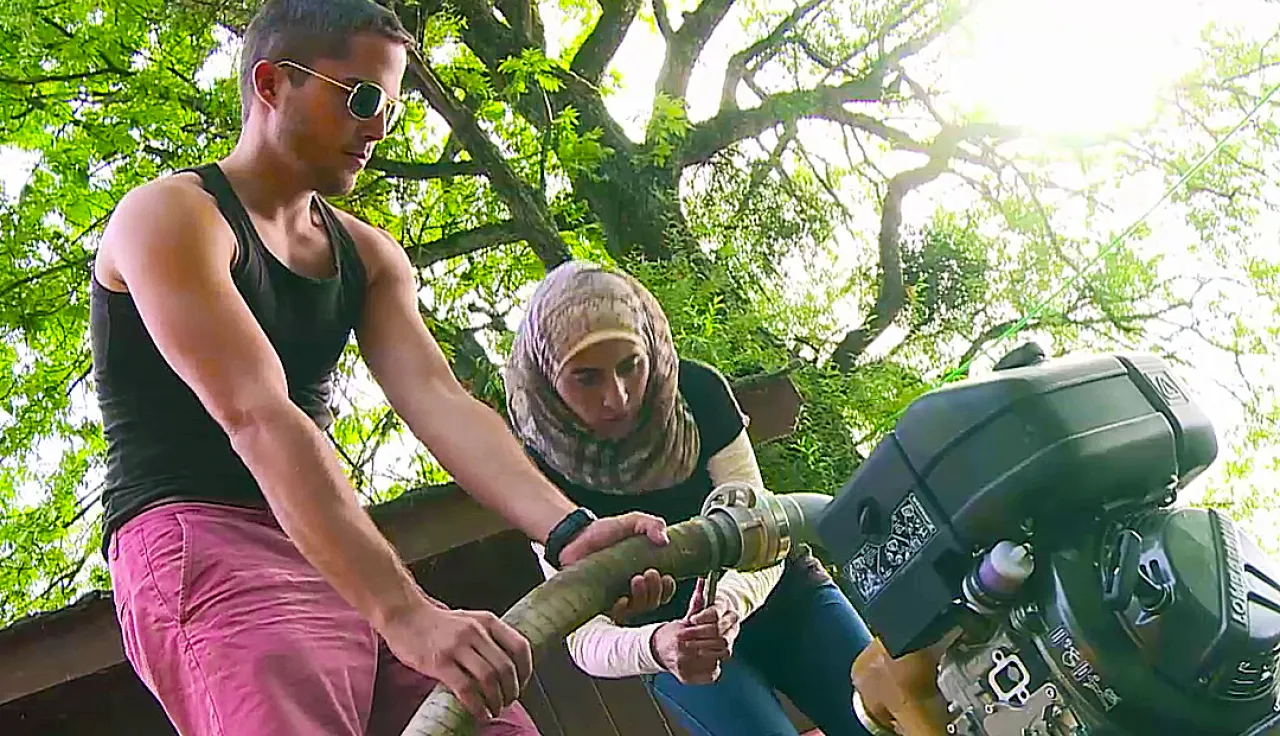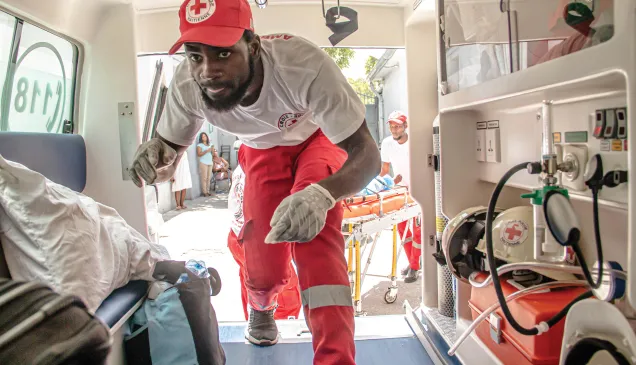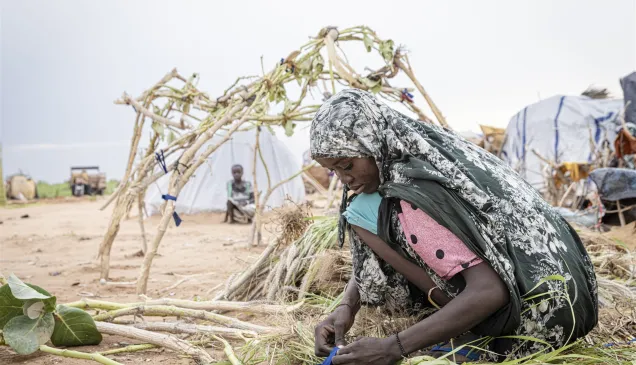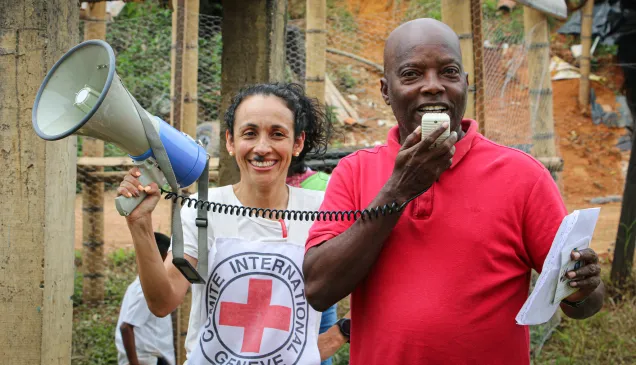Providing drinking water and saving lives

Fighting has forced 4,000 people to flee their homes. They've all congregated in one place. Humanitarian agencies are busy setting up a temporary camp. Priority number one: clean, safe drinking water.
That was the scenario for a course run by the ICRC and Neuchâtel University. In 2015, the course took place for the 20th time. From Mali to Syria, in Casamance, Libya and Nepal, this fictitious scenario is reality for millions of people. Every year, lives are turned upside down by war and natural disaster.
Providing drinking water improves health, saves lives and creates the conditions for long-term sustainability.
Aid workers, academics and the private sector unite to help people in need
When war or disaster strike, every minute counts. You can survive for a while without food or a roof, but not without water.
Maintaining or restoring water supplies is often complex. It involves working in the middle of a conflict or in areas cut off from the rest of the world. And it requires the latest technology, combined with experience of working in emergencies.
For 20 years, the ICRC and the University of Neuchâtel have been working together to train humanitarian engineers capable of reacting quickly and effectively. They rely on support from the private sector in developing solutions that will work in the field. In 2015, 20 professionals from the humanitarian world, the private sector and academia took part in a course in Neuchâtel, Switzerland, covering both theory and practice.



